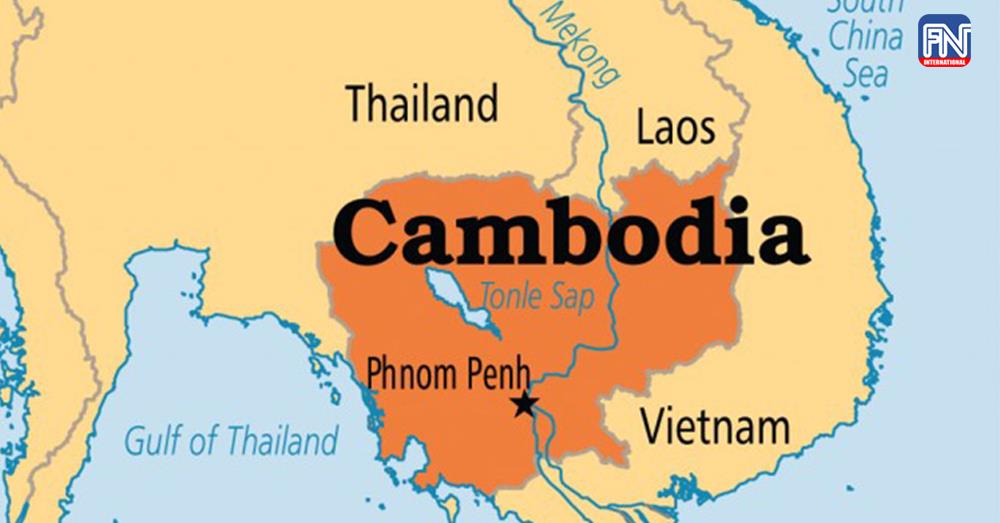Phnom Penh (FN), Oct. 26 – In a world fraught with uncertainty, complexity, and volatility, Cambodia finds itself at a pivotal inflection point, where global governance, multilateralism, and the rules-based international order face unprecedented strains and challenges after the end of the Cold War.
The world faces multiple crises, from the protracted war in Ukraine to the escalating war in the Middle East. In Asia, a trio of security flashpoints – India-Pakistan tensions over Kashmir, a fragile security environment on the Korean Peninsula, and deep-rooted complex disputes in the South China Sea and Taiwan Straits – keep the world on edge.
Southeast Asia grapples with a convergence of challenges or a perfect storm within this complex geopolitical landscape- a mixture of the US-China power competition, sluggish economic recovery, supply chain disruptions, and rising identity politics and nationalism.
The intricate dance between China and the US casts a long shadow over the region. Southeast Asian countries are under increasing pressure to choose sides although they persistently resist doing so. Maintaining strategic autonomy is an uphill, long-term struggle for small states like Cambodia.
The geopolitical and geoeconomic landscape in the Mekong region is undergoing a profound transformation, marked by increasing complex dynamics of power reconfiguration. Almost all significant powers have engaged the area through various initiatives.
This region, historically characterized by its natural beauty and rich cultural heritage, is now emerging as a pivotal theater for significant power competition on both political and economic fronts. China has taken all measures to secure this strategic backyard from being influenced by external powers, particularly the US.
The crisis in Myanmar has invited foreign intervention. ASEAN has not effectively responded to the problem due to its limited crisis management capacity and non-interference principle. The lack of political consensus and united position within ASEAN prevents this inter-governmental organization from having a breakthrough in dealing with the crisis.
Transboundary water resource management is another critical issue that requires a coherent, effective regional response. The Mekong River Commission provides technical solutions to the problems related to managing the Mekong River Basin but does not have enforcement power. Therefore, the political will of all riverine countries is of utmost importance.
Given these challenges, Cambodia believes confidence-building measures, preventive diplomacy, and robust crisis management mechanisms are essential. Simultaneously, Cambodia firmly upholds the principles of the rules-based international order while promoting open and inclusive multilateralism.
Cambodia has been proactive in strengthening cooperation and partnerships with its immediate neighbours to maintain regional peace and stability and create new economic opportunities for the Kingdom and the region.
Under the leadership of prime minister Hun Manet, Cambodia is going to deepen regional integration further- believing that Cambodia’s future or destiny cannot be detached from that of the region. Transforming Cambodia into a gateway a hub, or a bridging state of the Mekong region is a long-term endeavor.
Cambodia’s neighbourhood diplomacy is rooted in the fundamental principles of mutual respect, mutual understanding, mutual trust, and mutual interest for peace and prosperity (M4P2). These principles are the bedrock upon which Cambodia’s foreign policy strategy is constructed. Neighbouring countries occupy a central and pivotal position within Cambodia’s foreign policy framework.
Cooperation with Lao PDR
Cambodia and Lao PDR share a deep history, cultural values, and identity. This strong bond has translated into a growing bilateral trade relationship, reaching USD 210 million in 2022.
Furthermore, the active participation of 35 Cambodian companies in Laos demonstrates a promising trend of bilateral investment cooperation.
Notably, Laos plays a pivotal role as a “battery” within the Mekong region. Cambodia currently imports approximately 445 megawatts of power from Laos. Looking ahead, is anticipated that power trade will surge to a remarkable 6,000 MW by 2030.
Sustaining and enhancing this trajectory will bolster our energy security and foster greater economic prosperity and sustainability for Cambodia and Laos.
Cooperation with Thailand
Cambodia and Thailand enjoy a longstanding relationship marked by practical cooperation and increasing bilateral trade and investment.
At a recent bilateral meeting between the two leaders, both sides agreed to elevate bilateral trade to USD15 billion by 2025. Bilateral trade reached USD4.67 billion in 2022, demonstrating consistent growth since 2015.
Thailand’s investments in Cambodia have exceeded USD2 billion in 2022, while Cambodia’s investments in Thailand have increased to USD130 million. These investments reflect the strength of economic ties and the potential for further collaboration in various sectors, including infrastructure, agroindustry, and tourism.
Cooperation with Vietnam
Cambodia and Vietnam have cultivated time-honored friendship and cooperation characterized by profound political trust and functional collaboration across sectors.
Economic cooperation between Cambodia and Vietnam has flourished. The collaborative efforts have borne fruit, manifesting in a bilateral trade volume that surged beyond USD10 billion in 2022.
Vietnam is one of the critical sources of foreign direct investment in Cambodia, distributed across a diverse array of 200 projects, amounting to a total of over USD2.9 billion.
Cambodia could better exercise its agency and be more resilient by fostering cooperation and collaboration with immediate neighbours. Through such proactive engagement, Cambodia can navigate a multiplex world and contribute to regional development.
The Mekong countries must uphold rules-based international order, promote open and inclusive regionalism, and ensure that diplomacy and dialogue prevail over conflict and confrontation.
Chheang Vannarith is the President of the Asian Vision Institute and Founder and Chairman of Angkor Social Innovation Park.
=FRESH NEWS
